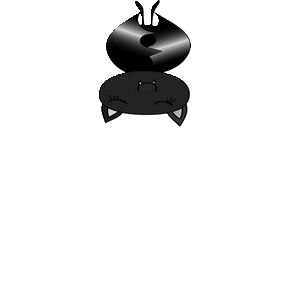Career Pathways That Shape U.S. Relations With Other Countries
Overview: Careers That Shape U.S. Relationships Abroad
If you want a career focused on how the United States engages other countries, you have several proven pathways: diplomacy, national security, international development, global trade and economics, and policy research. These roles exist across government agencies, embassies and consulates, multilateral institutions, and nonpartisan think tanks, with well-defined entry routes and advancement ladders. The U.S. Department of State’s Foreign Service and Civil Service are among the most direct routes for frontline diplomacy and policy roles that manage relationships with foreign governments and publics [1] . The Foreign Service, in particular, places professionals in embassies and consulates worldwide to advance political, economic, and public diplomacy objectives [2] . Beyond government, nonpartisan research institutions like the Council on Foreign Relations (CFR) hire analysts and program staff who contribute to foreign policy debates and inform decision-makers [5] .
Pathway 1: U.S. Diplomacy (Foreign Service)
What you’ll do: Foreign Service Officers (FSOs) represent the U.S. overseas, engage foreign officials, analyze political and economic trends, support citizens abroad, and manage public diplomacy programs. FSOs rotate through roles in political affairs, economic reporting, consular services, public diplomacy, and management, often in fast-changing environments. These positions directly build and manage bilateral relationships and contribute to regional stability [2] .
Real-world example: An FSO in the political cone may report on elections, human rights, or security cooperation to inform Washington’s policy. A public diplomacy officer might run cultural exchanges and media outreach to strengthen mutual understanding and counter misinformation-core to sustaining long-term relationships [2] .
How to pursue it (step-by-step):
- Review career tracks, eligibility, and assessment phases on the official State Department careers portal [1] .
- Prepare for the multi-stage Foreign Service Officer selection process, which typically includes knowledge tests, a qualifications evaluation, an oral assessment, clearances, and a suitability review [2] .
- Consider internships or fellowships to gain exposure before applying; the department regularly posts such opportunities [1] .
Challenges and solutions: Assignments can be high-pressure or hardship posts. Mitigate by learning priority languages, building resilience, and seeking mentoring through State’s talent network and employee associations [1] .
Pathway 2: U.S. Civil Service in Foreign Affairs
What you’ll do: Civil Service professionals support U.S. diplomacy from Washington and other domestic offices. Roles include policy analysis, program management, sanctions coordination, international organization liaison, and operational support. These positions shape policy that embassies implement, strengthening America’s global presence [1] .
Real-world example: A Civil Service policy analyst may coordinate interagency inputs for a bilateral strategic dialogue or manage funding for democracy programs that advance shared values with partner nations [1] .
How to pursue it (step-by-step):
- Create a federal resume tailored to policy or program roles and monitor the department’s official careers portal for openings and qualifying criteria [1] .
- Target entry programs, internships, or term-limited fellowships that can lead to conversion if available; verify details directly via State’s postings [1] .
Challenges and solutions: Competition is strong. Strengthen your profile with policy writing samples, language skills, and subject-matter expertise developed through graduate study or internships [1] .
Pathway 3: Think Tanks and Policy Research
What you’ll do: Nonpartisan research organizations analyze global issues, publish reports, convene stakeholders, and brief officials and media. Roles include research associates, fellows, program coordinators, and analysts. Your work informs U.S. decision-making and public understanding of international issues-indirectly shaping relationships abroad [5] .
Real-world example: At CFR, analysts and research associates contribute to work on international economics, geopolitics, and security, offering insights used by government, business, and civil society [5] .
How to pursue it (step-by-step):
- Review open roles and required qualifications-often BA/BS for research associate roles and advanced degrees for fellows-on reputable think tank career pages like CFR’s [5] .
- Build a portfolio: briefings, memos, data analysis, or language-based regional research.
- Network through public events and policy forums hosted by established institutions (search the organization’s events and membership pages for schedules).
Challenges and solutions: Research roles can be highly competitive. Strengthen candidacy with quantitative skills, regional expertise, and published work-peer-reviewed or policy briefs-aligned to current priorities (e.g., U.S.-China relations, supply chains, global health security) [5] .
Pathway 4: International Development and Program Management
What you’ll do: International development professionals design and manage programs in governance, health, education, economic growth, and humanitarian response. While agencies like USAID lead these missions, many program roles are advertised through general job boards under “International Relations,” including program officer, analyst, and grants management positions across NGOs and implementing partners [3] [4] .
Real-world example: A program officer might coordinate a democracy-strengthening initiative that builds civil society capacity in a partner country, directly supporting bilateral objectives around governance and rule of law [3] .
How to pursue it (step-by-step):
- Search for “Program Officer,” “Grants Manager,” or “Monitoring & Evaluation” roles with international focus on reputable job platforms that aggregate verified employer postings [3] [4] .
- Tailor your resume to highlight project cycles, stakeholder coordination, budgeting, and impact metrics.
- Consider graduate study in international relations, public policy, or development economics to qualify for advancement.
Challenges and solutions: Funding cycles and travel constraints can affect stability. Build adaptability and cross-functional skills (finance, procurement, MEL) to remain competitive across programs [3] .
Pathway 5: Trade, Economics, and Geoeconomics
What you’ll do: Specialists in international political economy analyze trade flows, sanctions, investment screening, and supply chains-issues central to U.S. economic relationships. Think tanks and research groups hire analysts for geoeconomics roles, and these skills also transfer to government and private sector policy teams [5] .
Real-world example: CFR’s Greenberg Center for Geoeconomic Studies recruits analysts who examine intersections of economic policy and foreign policy; alumni have moved into roles across government and finance, reflecting the cross-sector relevance of this expertise [5] .
How to pursue it (step-by-step):
- Develop quantitative analysis skills (statistics, Excel, R/Python), trade law basics, and country or regional expertise.
- Apply to analyst roles at established institutions with strong track records in international economics research [5] .
Challenges and solutions: Data complexity and shifting regulations can be demanding. Stay current through reputable institutions’ publications and consider coursework or certificates in trade policy and sanctions compliance.
Alternative and Complementary Roles
Public diplomacy and communications: Create strategic messaging, cultural outreach, and exchange programming that shape perceptions and long-term relationships-roles common in embassies and cultural institutions [2] .
Security and crisis management: Some Foreign Service Specialists support security, logistics, and medical readiness-critical to sustaining U.S. engagement in complex environments [2] .
Academia and teaching: Universities hire instructors and professors in international relations and political science, contributing research and training the next generation; many such roles appear on reputable job boards’ international relations listings [3] .
How to Choose Your Path: A Practical Decision Framework
Clarify your focus: If you want direct government-to-government engagement, prioritize the Foreign Service. If you prefer policy design and stability stateside, consider Civil Service. For research and convening, target think tanks. If you want field-level impact, explore development program roles. If economics drives your interest, pursue geoeconomic analysis [1] [2] [5] .

Source: pixabay.com
Assess requirements and mobility: The Foreign Service requires worldwide availability and rotations; Civil Service is more location-stable. Think tanks and development roles may involve travel or fieldwork depending on portfolio [2] [3] .
Build marketable skills: Foreign language proficiency, policy writing, data analysis, and program management are valued across pathways. Use internship and fellowship postings on official and reputable portals to target gaps [1] [3] .
Action Plan: Steps to Get Started
- Map your target roles and agencies. For frontline diplomacy, review the Foreign Service paths and sign up for the State Department’s updates to learn about exams and application windows [1] [2] .
- Build experience. Seek internships, research assistantships, or program roles listed under international relations on reputable job boards to gain hands-on exposure to policy and fieldwork [3] [4] .
- Strengthen credentials. Consider graduate programs in international affairs, public policy, security studies, or development, particularly if aiming for analytic and research roles at think tanks or for specialized economic analysis [5] .
- Network strategically. Attend public events hosted by established institutions and use informational interviews to refine your path; check official events calendars on institutional sites you can verify directly [5] .
- Apply in cycles. Government and think tank hiring often follows budget and academic calendars; set alerts on official and reputable portals and tailor materials to each role’s required competencies [1] [5] .
Common Questions
Do I need an advanced degree? Many roles-especially policy research and geoeconomics-prefer a master’s or higher. The Foreign Service does not require a specific degree, but competitive applicants often have advanced study and language skills [2] .

Source: blog.iawomen.com
Where can I find current openings? For frontline diplomacy and federal policy roles, use the State Department’s official careers portal [1] . For research and analysis roles, review openings at established organizations like CFR [5] . For a broad set of international relations roles across sectors, explore reputable job boards’ curated listings [3] [4] .
Key Takeaways
If your goal is to work on the relationships between the United States and other countries, prioritize one of these routes: the U.S. Department of State’s Foreign Service (frontline diplomacy), Civil Service (policy and operations), think tanks (research and convening), international development (program design and delivery), and geoeconomic analysis (trade and financial statecraft). Each offers clear steps to enter, verified resources to begin your search, and multiple ways to build skills that translate across roles and sectors [1] [2] [5] [3] .
References
[2] U.S. Department of State (2025). Foreign Service career paths and roles.
[3] Indeed (2025). International relations jobs across sectors.
[4] Indeed (2025). International relations jobs in the United States.
[5] Council on Foreign Relations (CFR) (n.d.). Open positions and research roles.


